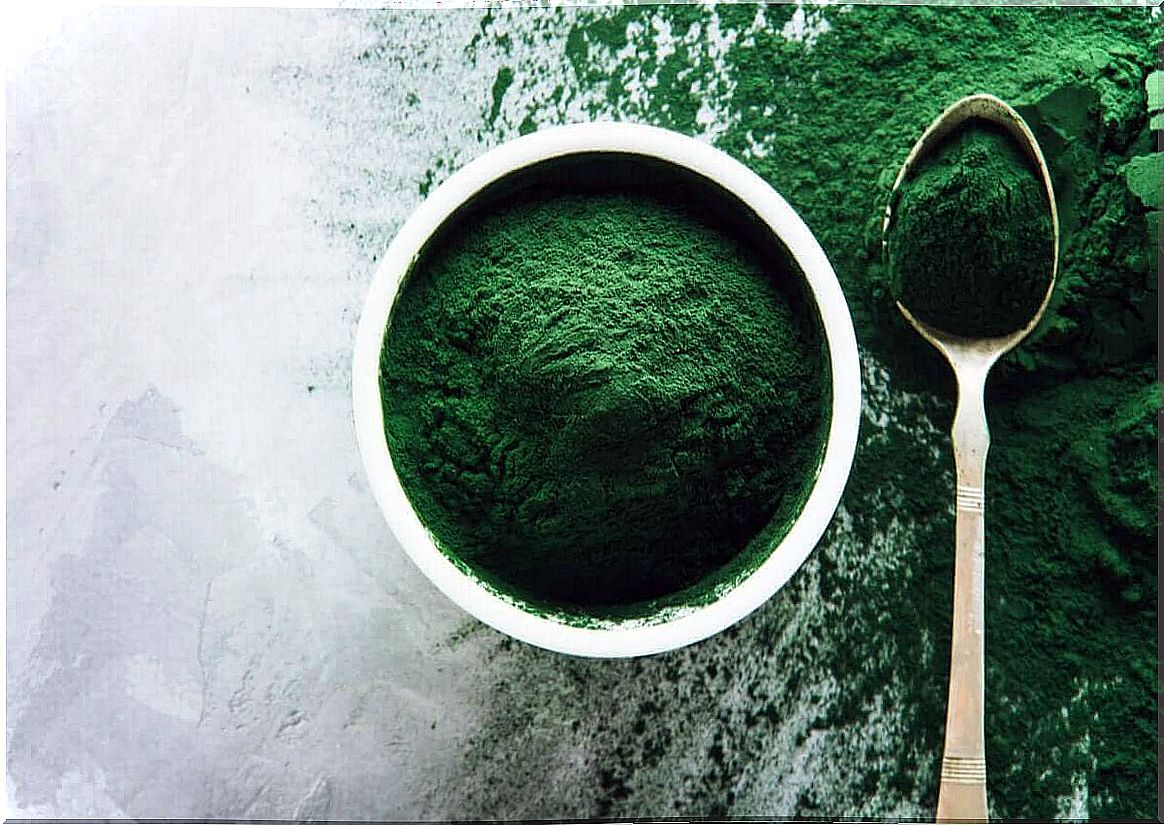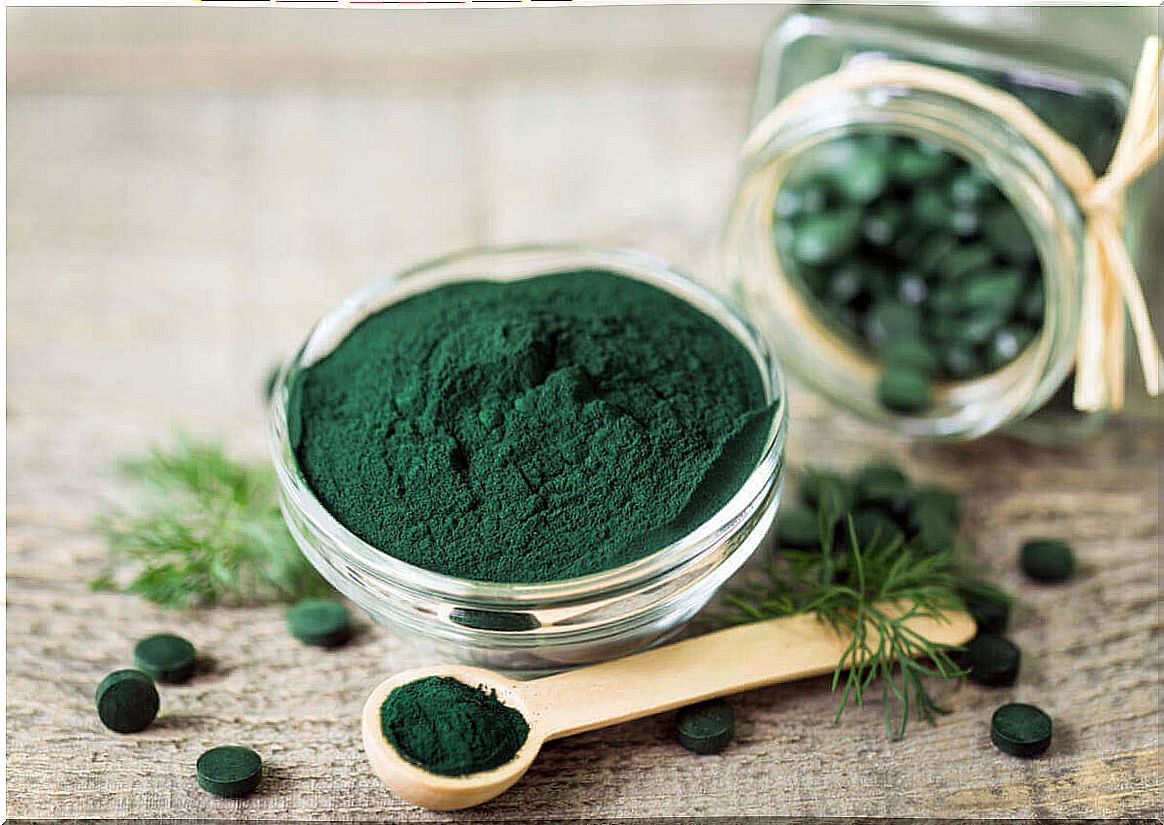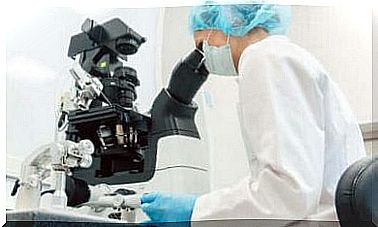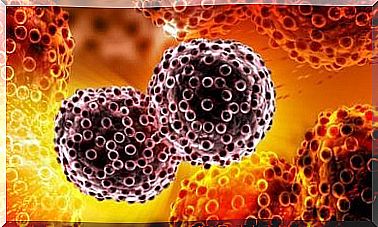5 Precautions And Contraindications Before Taking Spirulina

In recent years, spirulina has gained increasing popularity in the food industry because the health benefits have been recognized. Like all dietary components, however, there are certain precautions and contraindications that you must consider before taking spirulina.
Who should avoid taking it?
Spirulina is an alga that grows easily in desert areas and even more so where the water is alkaline. Due to the amount of nutrients it provides, many consider it a superfood. However, this does not mean that intake is always safe.
Spirulina: What nutrients does it provide?
Civilizations such as the Aztecs and Incas have ingested this drug since ancient times. However, it was not until some time ago that the important properties of human health were rediscovered. That is why many people today value it highly, and you can get it in powder, capsule, liquid and tablet form.
Spirulina contains protein in large amounts, essential fatty acids and antioxidants. In addition, it also contains minerals such as iron, copper and zinc as well as vitamin A, E and B complex.
The benefits of spirulina
Consequently , several studies highlight that spirulina, thanks to its components, can help prevent some diseases and strengthen the immune system.
Its most recognized effects are the following:
- It is an antioxidant and antiviral.
- It retains heavy metals, so it is a natural complex formation.
- It regulates blood sugar and cholesterol levels.

What are the precautions and contraindications to taking spirulina?
Although this supplement is safe for most people, in some specific cases it is best to avoid it. This is because it can have some side effects. Let’s take a closer look at 5 situations that deserve caution.
People with haemophilia should take precautions before taking spirulina
Spirulina has an anticoagulant effect, which means that it slows down the effect of platelets that block blood vessels. Therefore, it affects the body’s ability to stop bleeding.
In this sense, those taking medications with the same effect, for conditions such as atrial fibrillation or stroke, should avoid spirulina. In patients with haemophilia, bruising and heavy bleeding may intensify.
2. Pregnant or breastfeeding women
There are no exact data on the effect of this supplement during pregnancy. However, experts know that algae can be contaminated with toxins or metals.
Heavy metal poisoning is a serious condition that affects several organs. The brain, kidneys and red blood cells are exposed to the accumulation of these toxins, which in the medium term poses an increased risk of developing other diseases.
The placenta and umbilical cord between fetus and mother are also vulnerable to heavy metal poisoning. Therefore, pregnancy is one of the situations where there are precautions and contraindications regarding taking spirulina.
3. People with autoimmune pathologies should not take spirulina
Taking spirulina strengthens the immune system. However, in some situations – such as multiple sclerosis, lupus, rheumatoid arthritis, other similar conditions – Spirulina may aggravate this effect and thus aggravate these conditions.
Therefore, it is best to stay away from intake in these cases.
4. Allergies
According to some studies, spirulina may have an allergenic component. Therefore, there is a possibility that it may cause side effects. While exposure to spirulina is necessary to detect it, those who already suffer from other food allergies should take extreme precautions.
5. Patients with phenylketonuria should take precautions before taking spirulina
Phenylketonuria is an inherited disease that has a low incidence in the general population. In these patients, there is a change in the metabolism of the amino acid called phenylalanine.
For these people, the intake of products that contain this substance, such as algae, is contraindicated. If they do, the body cannot perform the specific metabolism if symptoms occur.

What to consider before taking spirulina
To be clear, spirulina is a food that is used as a supplement and not as a medicine. Taking appropriate doses is safe for most people, except for those mentioned in the previous section.
However, in some special cases, side effects may occur. These may include skin rash and itching, thirst, constipation, abdominal pain and dizziness. Although this component is an alternative to the intake of proteins, essential fatty acids and other nutrients, it does not mean that it is not able to produce side effects.
Contrary to many people’s beliefs, the fact that a product is natural does not mean that it will always be harmless. If you are suffering from any disease, breastfeeding or allergic to certain foods, you should therefore consult your doctor to see if you can incorporate this algae into your diet.









